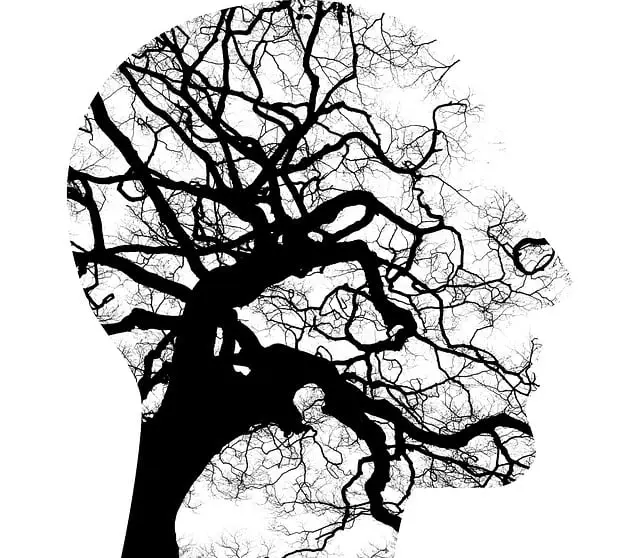Kaiser Permanente mental health Highlands Ranch prioritizes risk management through mindfulness meditation and compassion cultivation, addressing emotional fatigue, burnout, ethical challenges, and legal complexities. Their holistic approach enhances patient outcomes by fostering resilience, attentiveness, and effectiveness in delivering quality care, while also focusing on staff well-being through tailored stress reduction methods and continuous training. Regular reviews and updates to risk management plans ensure a safe work environment for professionals, ultimately improving patient care.
Mental health professionals confront unique risks daily, from patient confidentiality breaches to emotional burnout. This article explores comprehensive risk management planning tailored for practitioners at Kaiser Permanente Highlands Ranch. We delve into understanding specific risks in mental health practice and developing robust strategies to mitigate them. By identifying hazards, creating a tailored plan, implementing effective responses, and fostering continuous evaluation, mental health professionals can ensure safe, supportive work environments within the renowned Kaiser Permanente healthcare system.
- Understanding Risk in Mental Health Practice at Kaiser Permanente Highlands Ranch
- Identifying Potential Hazards and Vulnerabilities Specific to Mental Health Professionals
- Developing a Comprehensive Risk Management Plan for Clinical Settings
- Implementing Strategies to Mitigate and Respond to Risks Effectively
- Continuous Evaluation and Improvement: Ensuring Safe Work Environments for Mental Health Experts
Understanding Risk in Mental Health Practice at Kaiser Permanente Highlands Ranch

At Kaiser Permanente Highlands Ranch, understanding risk within mental health practice is paramount. The organization recognizes that while providing therapeutic services, professionals are inherently exposed to a range of potential risks, from emotional fatigue and burnout to ethical dilemmas and legal complexities. These risks can stem from high-stress environments, challenging client populations, or the sensitive nature of shared information.
To mitigate these risks, Kaiser Permanente Highlands Ranch encourages mental health professionals to incorporate mindfulness meditation and compassion cultivation practices into their routines. Such techniques not only enhance personal well-being but also improve patient outcomes by fostering a deeper level of Mental Health Awareness among both practitioners and clients. This holistic approach ensures that the team remains resilient, attentive, and effective in delivering quality care.
Identifying Potential Hazards and Vulnerabilities Specific to Mental Health Professionals

Mental health professionals often find themselves navigating complex emotional landscapes—a factor that significantly influences their work environment and overall well-being. Unlike traditional office settings, mental health clinics like those operated by Kaiser Permanente in Highlands Ranch encounter diverse patient populations with varying levels of distress and potential risks. Understanding these unique challenges is paramount for effective risk management.
One key aspect to consider is the emotional regulation required to manage intense situations. Professionals must constantly assess and mitigate the impact of trauma, violence, or extreme emotional expressions from clients. This demands a sophisticated Mental Health Policy Analysis and Advocacy approach that equips staff with strategies to handle high-stress scenarios safely. Moreover, regular risk assessments tailored to these specific vulnerabilities are crucial for identifying potential hazards early on, ensuring a secure work environment for both practitioners and patients alike.
Developing a Comprehensive Risk Management Plan for Clinical Settings

At Kaiser Permanente mental health Highlands Ranch, developing a comprehensive risk management plan is paramount to ensuring patient safety and fostering a therapeutic environment. This involves a multi-faceted approach tailored to address various risks unique to clinical settings. A robust strategy begins with identifying potential hazards, including but not limited to, patient self-harm, staff burnout, and cultural barriers to care. Incorporating Crisis Intervention Guidance and Cultural Sensitivity in Mental Healthcare Practice is essential to mitigate these risks effectively.
The plan should delineate clear protocols for crisis management, emergency response, and routine risk assessment procedures. Regular staff training on Social Skills Training methodologies enhances their ability to handle diverse patient needs and manage high-risk situations competently. By integrating these components, mental health professionals can create a structured yet flexible framework that supports both patient well-being and the resilience of the healthcare team.
Implementing Strategies to Mitigate and Respond to Risks Effectively

Effective risk management planning for mental health professionals at Kaiser Permanente mental health Highlands Ranch involves implementing strategic initiatives aimed at mitigating and responding to potential risks. This proactive approach ensures that clients receive the highest level of care while minimizing vulnerabilities. By integrating robust systems, such as comprehensive risk assessment tools and continuous staff training on recognizing early warning signs, the facility can proactively address emerging issues.
Moreover, fostering a culture that prioritizes mental wellness and encourages self-care practices among professionals is paramount. This includes implementing Stress Reduction Methods tailored to the unique demands of the job, promoting open communication channels for sharing concerns, and providing access to resources supporting work-life balance. Such holistic strategies not only safeguard the well-being of mental health professionals but also enhance their ability to deliver effective care to clients.
Continuous Evaluation and Improvement: Ensuring Safe Work Environments for Mental Health Experts

Mental health professionals at Kaiser Permanente mental health Highlands Ranch understand that continuous evaluation and improvement are key to fostering safe work environments. Regularly reviewing and updating risk management plans is essential to addressing emerging challenges and best practices in the field. This proactive approach ensures that healthcare providers have the necessary tools and resources to navigate complex situations, such as managing patient risks or dealing with challenging colleagues.
By implementing effective conflict resolution techniques and burnout prevention strategies for healthcare providers, the team at Kaiser Permanente mental health Highlands Ranch prioritizes the well-being of its experts. Encouraging open communication channels and promoting a culture of self-care routine development for better mental health are integral parts of this process. These measures not only enhance job satisfaction but also contribute to improved patient outcomes by maintaining high standards of care.
Mental health professionals at Kaiser Permanente Highlands Ranch play a vital role in fostering well-being, yet they face unique challenges and risks. By understanding and proactively managing these risks through comprehensive planning, as outlined in this article, clinicians can create safer work environments. Identifying specific hazards, developing robust risk management strategies, and continuously evaluating practices are key steps to protect both professionals and the patients they serve. This approach ensures that Kaiser Permanente Highlands Ranch maintains its reputation for providing exceptional mental health care while prioritizing the resilience and well-being of its dedicated staff.






